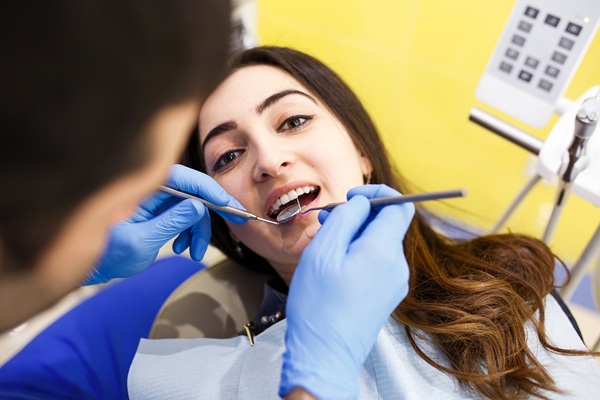Botox® and Dental Improvements

Curious about how Botox works? Botox is a botulinum toxin that is injected into the muscles just underneath your skin. Once the toxin enters your body it attaches to your nerve endings, which in turn restricts muscle movement. This makes Botox a common choice for dental patients who are experiencing facial pain or have been diagnosed with a dental problem, like TMD or bruxism.
Botox and dental treatments
Learning how Botox can be used to make dental improvements is a great idea if you are currently living with a dental-related problem. Botox can be used for both cosmetic and therapeutic reasons, making it a versatile treatment option when it comes to dental improvements. It is important for you to take proper care of your teeth and when you are diagnosed with a dental-related disorder that can potentially harm your teeth, understanding what treatments are available gives you more options.
How Botox is used for dental improvement reasons
The list below includes some of the more common ways Botox can be used for dental improvement reasons.
Temporomandibular joint disorder (TMJ)
Those who have been diagnosed with temporomandibular joint disorder often undergo Botox treatment when other forms of TMJ treatment have not worked. While every patient is different, most experience quick relief after receiving their Botox injections. Botox can also be used to help restore a patient's normal facial expressions when they have been suffering from TMJ for a long period of time, as ongoing TMJ problems can change the way someone looks due to overusing certain facial muscles.
Bruxism
Dental patients who have been diagnosed with bruxism (which is the term for teeth grinding and clenching) can also choose to undergo Botox treatments. An experienced dental professional will inject the Botox into the jaw muscle, with a goal of weakening the muscle enough to prevent someone from involuntary clenching their jaw or grinding their teeth. These actions not only make one’s jaw sore, but it can also cause damage to the teeth over time.
Fixing gummy smiles
A gummy smile is a term that is used to describe a smile that shows at least three millimeters of gums. Patients who have a gummy smile can choose to undergo Botox injections to temporarily weaken the muscles that make the upper lip move when smiling. This makes it so not as much gum is showing, allowing patients to feel more confident when showing off their smiles. Patients who choose to fix their gummy smiles using Botox will typically undergo 30-minute sessions about every three months.
Interested in getting Botox for dental improvement reasons?
Are you interested in getting Botox from a dentist? If after reading the above information you feel like this treatment option is a good choice for you, then we invite you to contact us now to schedule your first appointment. If you happen to have any questions for our caring dental team before your consultation appointment, please do not hesitate to contact us so we can provide you with the answers you need.
Are you considering Botox in the Columbia area? Get more information at https://davisanddingle.com.
Check out what others are saying about our services on Yelp: Read our Yelp reviews.
Recent Posts
A dental practice can help when a toothache starts. Tooth pain can come on slowly or all at once, often worsening if left untreated. Even if the pain feels small, it may be a sign of a bigger problem. Getting help early can stop the pain and protect the tooth from more damage.A dental practice…
A visit to a cosmetic dentist is the first step in improving your smile. These dental professionals offer a range of services designed to enhance the appearance of teeth, gums, and bite alignment. Whether you want to remove stains, reshape teeth, or create a more symmetrical smile, the process starts with a thorough consultation and…
Regular dental checkups are the key to good oral health, as they prevent potential dental problems before they become more serious. Visiting a dental practice not only helps maintain the health of the teeth and gums but also contributes to overall well-being. Knowing what to expect before visiting a dental practice for a routine checkup…
Teeth grinding, also known as bruxism, is a common problem seen in dental practices. In fact, many people have this condition and do not realize it because it tends to happen while sleeping. Over time, this habit can damage teeth, cause jaw pain, and lead to other problems, making getting the right treatment crucial.Even though…


